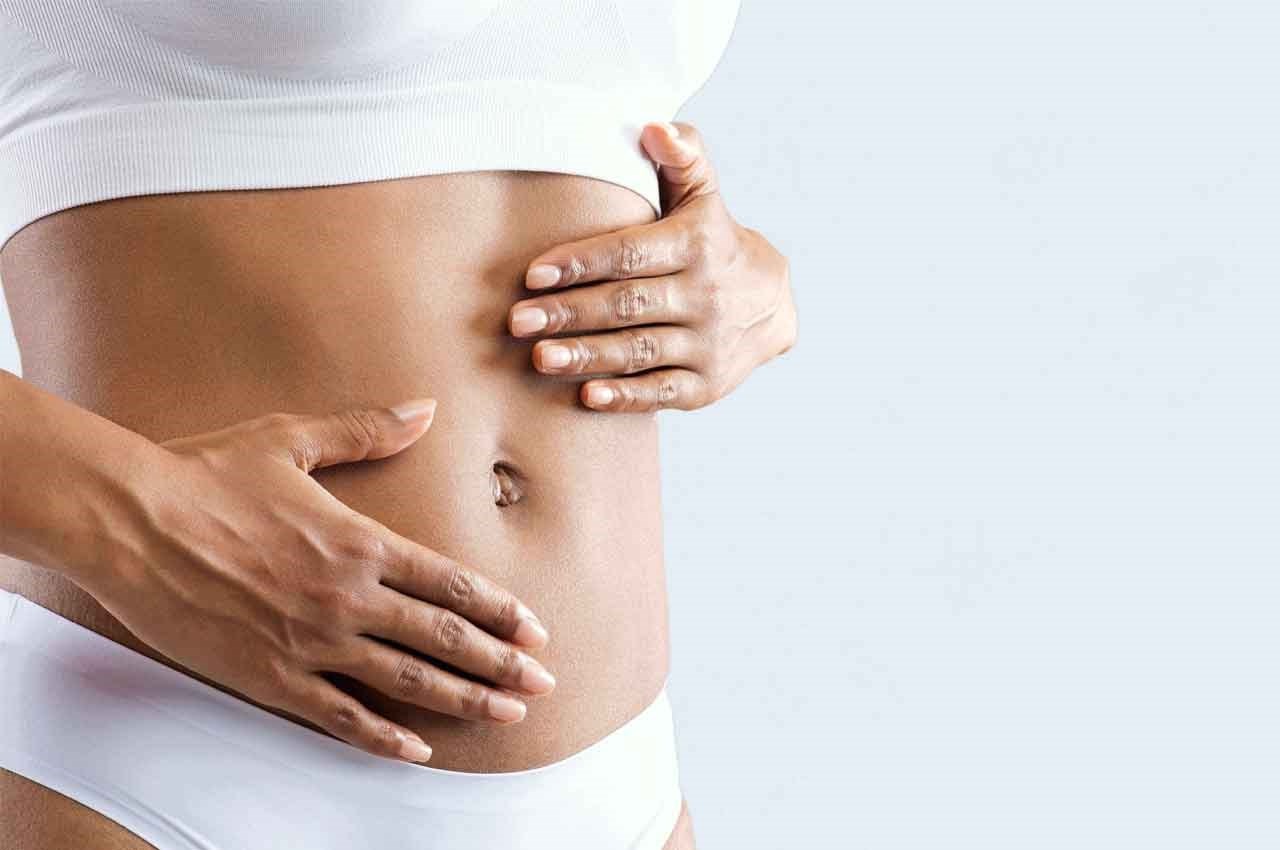Best Probiotics for your Gut
We know that good health starts in the gut. In fact, 40 trillion bacteria are working all the time to keep you well! But how healthy is your gut?
Read on to get started on your journey to good gut health: learn more about the signs of an unhealthy gut, why gut health affects more than just your digestion, and the best probiotic for gut health.
- The gut microbiome
- Why is gut health important?
- Signs of an unhealthy gut
- Best probiotics for gut health
- 10 ways to improve your gut health naturally
The gut microbiome
If you want to fully support your gut, you need to know a little more about how it works.
The gut microbiome is a collective ecosystem of microbes that reside in our guts. These microbes include a huge assortment of bacteria, yeast and viruses, unique to each and every one of us. Excitingly, research on the gut microbiome has taken off over the last few years – we now know more than ever about gut health and probiotics.
Read more about the microbiome in our article: All about the Microbiome
Gut health, probiotics and the microbiome have become more and more important in the world of wellness over the last decade. But our microbiome today faces many different challenges than it would have faced just 50 years ago, making it all the more important to take care of.
Factors in modern day living such as stress, travel and western diets are the biggest threats to the human microbiome, resulting in common conditions including:
- IBS1
- Candida2
- Allergies & Intolerances3
- Autoimmune conditions such as rheumatoid arthritis4 & psoriasis5
This means it’s more important than ever to understand the role of your gut in maintaining your overall health.
Best probiotic for gut health
Unlike foods rich in probiotics, with probiotic supplements, you know exactly how many probiotics you’re taking, and what type of strains are present. They’re also super-easy to take, available as capsules, gummies or in a sachet you can mix into drinks.
There are hundreds of different types of bacteria living in the gut, not to mention other microbes like viruses and yeasts. Some of these are beneficial, some at high levels can be harmful and others are commensal with no negative or positive influence. A few types of beneficial bacterial species we could expect to see in a healthy gut include:
- Bifidobacterium bifidum
- Lactobacillus acidophilus
- Lactobacillus plantarum
Although, there are many more different types of ‘good’ bacterial species. Generally, the Bifidobacterium genera reside mostly in the lower intestine whereas the Lactobacillus genera live predominantly in the small intestines.
It’s important to select supplements with the right strains for you, as research shows different strains do different things. For example, Lactobacillus acidophilus Rosell-52 has been shown to help improve symptoms of abdominal pain and distension9, Lactobacillus acidophilus NCFM® has been shown to help support bloating symptoms7, and Lactobacillus rhamnosus Rosell 11 has been researched to support the gut during antibiotics8.
Lactobacillus rhamnosus Rosell 11 and Lactobacillus acidophilus Rosell-52 can be found in Optibac Probiotics Every Day.

Why is gut health important?
Every organ within the gut, from the stomach to the anus, has a unique function that helps to keep your gut (and you) going regularly.
The key functions of your gut are:
- Taking in food
- Moving food through the digestive system
- Extracting and absorbing energy and nutrients
- Expelling the remaining waste as faeces (pooh)
Good digestion has a profound effect on your overall health, and the gut microbiome plays a key role in this. A healthy microbiome contains lots of good bacteria, also known as probiotics, which confer different health benefits.
Our microbiome does a lot for us and good gut bacteria are fundamental to our health. They help to break down and digest food, support the absorption of nutrients and discourage 'bad’ bacteria, known as pathogens, that can take over and stop the gut from functioning correctly.
Find out more about probiotics in our article: What are probiotics?
Signs of an unhealthy gut
We should point out that everybody has some bad bacteria in their guts and this is normal. However, an imbalance of good and bad bacteria could result in an unhealthy gut microbiome, known as dysbiosis. Symptoms of dysbiosis and an unhealthy gut include:
- Gas, wind or bloating
- Acid reflux
- Upset stomachs
- Sugar cravings
- Bad breath
- Food allergies or intolerance
- Trouble sleeping
So, if you suffer from one or more of the above symptoms, it’s probably time to join the millions of people prioritising a happy gut full of good bacteria.
Don’t forget that over 70%6 of your immune system resides in the gut, so it’s worth supporting your gut in small, easy ways to keep you and yours well on an ongoing basis.
10 ways to naturally improve the health of your gut
If you're short on time, we've put together a quick checklist below, giving ten easy ways to improve the health of your gut:
- Drink plenty of water – stay well hydrated by drinking plenty of water. Water helps to break down the food you eat, allowing waste to pass more easily through the intestine and boost nutrient absorption as well as preventing constipation.
- Chew your food well – digestion starts in the mouth and chewing food well is an important part of improving gut health naturally.
- Eat fibre-rich foods – good bacteria feast on foods such as onions, bananas, broccoli, kale and beans, which contain a type of fibre known as prebiotics.
- Limit sugar intake – sugar promotes the growth of bad bacteria by acting as a food source. This gives less opportunity for good bacteria to flourish.
- Limit intake of processed foods – there is less nutrition and natural benefits for the gut because their natural state has been changed. Processed foods can be difficult to digest, making bad bacteria prone to multiply.
- Try fermented foods – these good gut health foods, such as kimchi, kombucha and sauerkraut, contain naturally occurring probiotic bacteria.
- Exercise regularly – bowel motility, particularly in those prone to constipation, is helped by regular exercise. Regular exercise is also associated with greater microbial diversity.
- Drink alcohol and caffeine in moderation – alcohol irritates the digestive tract and can alter bacterial balance. Caffeine increases stress hormones which can lead to anxiety-induced gut symptoms in some people.
- De-stress and sleep well – there are direct links between the gut and brain. Stress and tiredness can affect your gut health.
- Take a live cultures supplement – make your life easier and improve levels of good bacteria by taking a daily probiotic. For the best results always select probiotic strains specfic to your health needs.
If you enjoyed this article you might like to read some other related pages:
Does it really matter what time you take your probiotics?
Ways to get more from your probiotics
Healthcare professionals can read: Do women’s probiotics work in the gut?
References
- C. Casen, H. C. Vebø, M. Sekelja, F. T. Hegge, M. K. Karlsson, E. Ciemniejewska, S. Dzankovic, C. Frøyland,R. Nestestog, L. Engstrand, P. Munkholm,O.H.Nielsen, G.Rogler, M.Simre L.€Oh. (2015). Deviations in human gut microbiota: a novel diagnostic test for determining dysbiosis in patients with IBS or IBD. Alimentary Pharmacology and Therapeutics. 42 (1), 71-83.
- Harry Sokol, Valentin Leducq, Hugues Aschard, Hang-Phuong Pham, Sarah Jegou,Cecilia Landman, David Cohen, Giuseppina Liguori, Anne Bourrier ,Isabelle Nion-Larmurier (2016). Fungal microbiota dysbiosis in IBD. Gut. 66 (6), 1-10.
- William Zhao BS, Hsi-en Ho MD, Supinda Bunyavanich. (2019). The gut microbiome in food allergy. Elsevier logo Journals & Books Annals of Allergy, Asthma & Immunology. 122 (3), 276-282.
- Vaahtovuo J, Munukka E, Korkeamäki M, Luukkainen R, Toivanen P (2008). Fecal Microbiota in Early Rheumatoid Arthritis. The Journal of Rheumatology. 35 (8), 1500-1505.
- Linsheng Huang, Renyuan Gao Ning YuYefei, Zhu Yangfeng Ding. (2019). Dysbiosis of gut microbiota was closely associated with psoriasis. Science China Life Sciences. 62 (6), 807–815.
- G Vighi, F Marcucci, L Sensi, G Di Cara, and F Frati. (2008). Allergy and the gastrointestinal system. Clinical & Experimental Immunology. 153 (3), 3–6
- Steven E. Faber. (2003). Comparison of probiotics with antibiotics to probiotics alone in treatment of diarrhea predominant IBS (D-IBS), alternating (A-IBS) and constipation (C-IBS) patients. Gastroenterology. 124 (4), A687–A688.
- Malkanthi Evans, Ryan P. Salewski, Mary C. Christman, Stephanie-Anne Girard and Thomas A. Tompkins . (2016). Effectiveness of Lactobacillus helveticus and Lactobacillus rhamnosus for the management of antibiotic-associated diarrhoea in healthy adults: a randomised, double-blind, placebo-controlled trial. British Journal of Nutrition. 116 (1), 94-103.
- Benes Z. et al., (2006), ‘Lacidofil (Lb. acidophilus Rosell-52 and Lb. rhamnosus Rosell-11) alleviates the symptoms of IBS’. Nutrafoods, 5:20-27.
Popular Articles
View all Gut Health articles-
Gut Health28 Feb 2025


